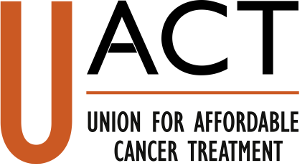On Friday July 9, 2021, the Union for Affordable Cancer Treatment (UACT) and Knowledge Ecology International (KEI) filed joint comments with the National Institutes of Health (NIH) regarding a prospective exclusive license for a cancer therapy technology. The Federal Register notice titled, “Prospective Grant of an Exclusive Patent License: Development and Commercialization of Monospecific CD22 Chimeric Antigen Receptor (CAR) Therapies for the Treatment of B-Cell Malignancies” (86 FR 33326), outlined that the technology is to be licensed to Syncopation Life Sciences Inc. (Syncopation), which is based in Palo Alto, CA.
The technology is an anti-CD22 CAR therapy, which has been shown to be effective in B-cell cancers, and the notice states that “CD22-targeting CAR-T has shown early promise in clinical trials for ALL [acute lymphoblastic leukemia] and NHL [Non-Hodgkin’s lymphoma].”
Syncopation was incorporated in California in May 2021, just two months ago. Nancy Goodman is listed as a founder of Syncopation. Goodman notably heads a charity called Kids v Cancer, and was a key player in lobbying for the pediatric priority review voucher. She is married to Michael Froman, the former United States Trade Representative. The other two founders of Syncopation are two Stanford scientists, Crystal Mackall, and Robbie Majzner. Mackall is listed as the principal investigator in $52 million of NIH/NCI grants.
Investors in Syncopation include three firms: Samsara Biocapital, Red Tree Venture Capital, and Emerson Collective. Emerson Collective works with Laurene Powell Jobs, and includes in its mission impact investing, philanthropy and advocacy, “in pursuit of a more equal and just America.”
If the NIH decides to give exclusive rights in the NIH’s patented inventions and/or the NIH’s regulatory test data, the NIH must use its leverage to negotiate terms in the licnese that limit the negative impacts of a legal monopoly on a cancer treatment. With Nancy Goodman and Emerson Collective in key leadership roles at Syncopation, the company should be open to provisions which provide protections to the public as regards pricing and access. If the NIH is not exploring ways to protect access and affordability in the licenses, it is because the NIH is indifferent to vast inequality of access globally or the costs its actions impose on health systems and families.
A PDF of KEI and UACT’s joint statement is available here: KEI-UACT-Comments-NIH-License-Syncopation-9July2021
